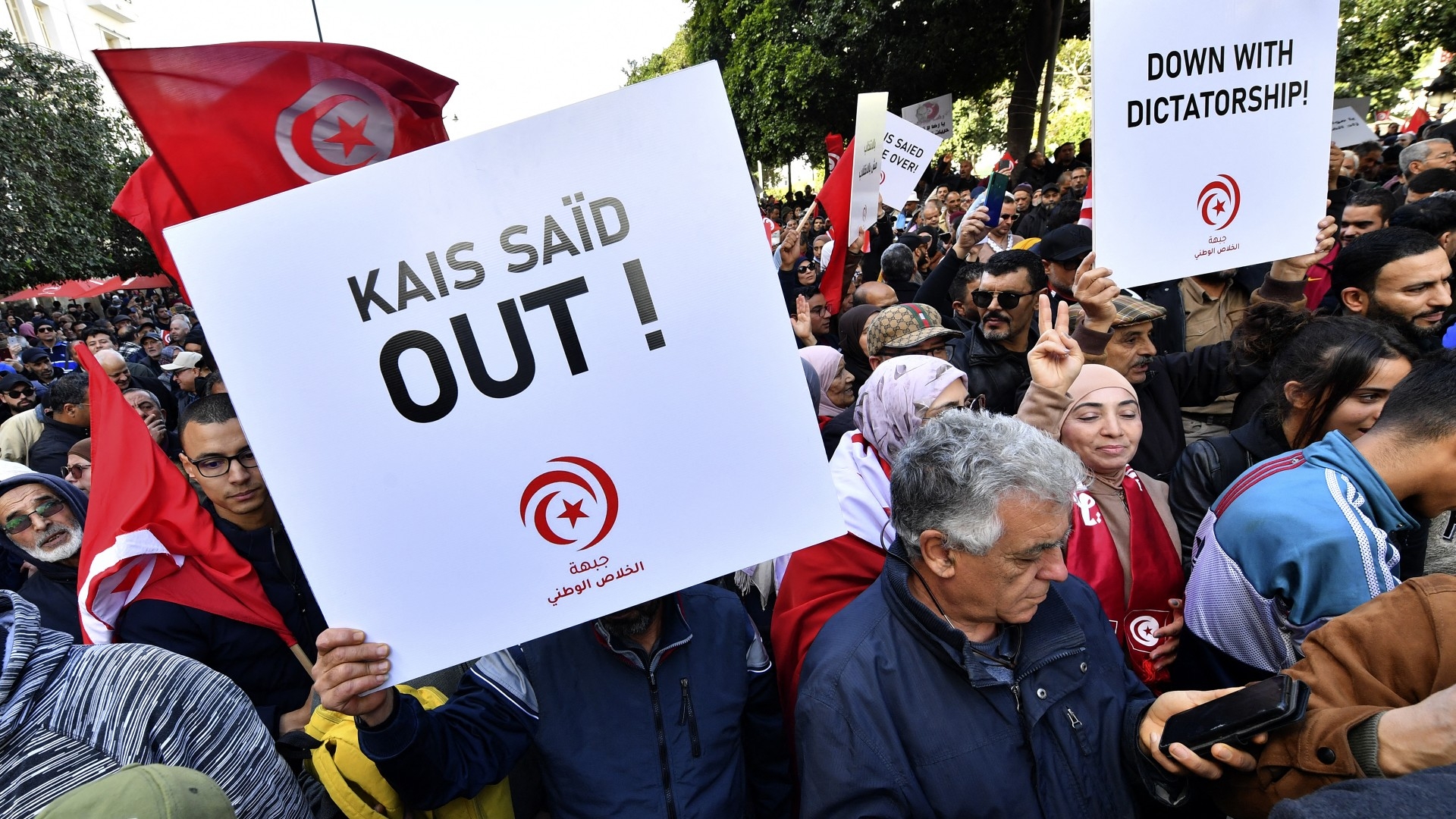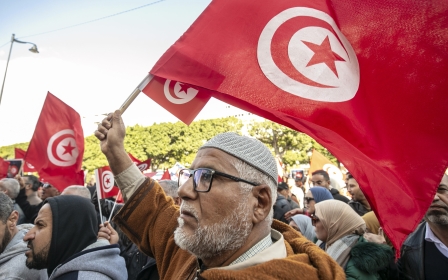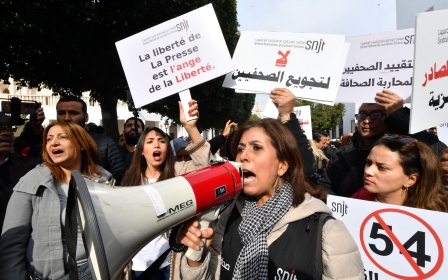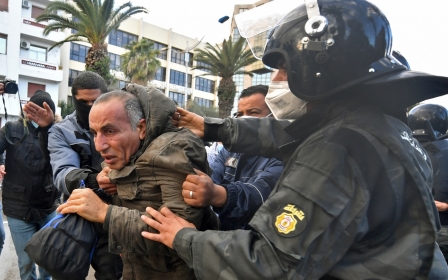Democrats warn Saied's crackdown threatens US-Tunisia relationship

A group of House Democrats have expressed alarm over Tunisian President Kais Saied's crackdown on his perceived opponents and decried his "racist and xenophobic" comments concerning Sub-Saharan African migrants.
In a letter addressed to US Secretary of State Antony Blinken on Tuesday, 20 Democratic members of Congress said they were concerned over the "stark acceleration" in Tunisia's shift towards autocracy and warned Saied's actions pose "grave concern" for US-Tunisia relations.
"Dissenting voices continue to be arrested or summoned for questioning on an almost daily basis," said the letter led by Gregory Meeks, the previous chair of the House Foreign Affairs Committee.
"The administration should make clear that Saied’s crackdown undermines the confidence in the rule of law that is essential for a flourishing US-Tunisia relationship and international monetary support that could benefit the Tunisian people and alleviate economic hardship."
It added that American lawmakers were concerned by reports that Tunisia was charging individuals with "conspiring against state security" and "plotting to overthrow the government" for meeting with US diplomats.
New MEE newsletter: Jerusalem Dispatch
Sign up to get the latest insights and analysis on Israel-Palestine, alongside Turkey Unpacked and other MEE newsletters
Tunisia has been engulfed in political and economic crises since July 2021, when Saied unilaterally suspended parliament and dissolved the government in what many have described as a "constitutional coup".
In May of that year, Middle East Eye revealed that a secret document was being circulated recommending Saied invoke Article 80 of the constitution and seize control of the country, citing emergency powers.
In late July, Saied did exactly that, claiming the coronavirus pandemic and the country's worsening economic situation necessitated that he freeze parliament and dismiss the government, as well as launch an anti-corruption drive.
In addition to freezing parliament, he has enacted several controversial measures, including shutting down the country's independent anti-corruption body and sidelining the national election authority.
'Sowing division'
In Tuesday's letter, the US lawmakers also pointed to Saied's recent racist remarks in which he called sub-Saharan African migrants a source of "violence, crimes and unacceptable acts".
"Spurred by Saied's rhetoric, documented and undocumented migrants have been arbitrarily arrested by security services, officials have seized youth from nurseries, individuals have been evicted from their homes, and entire neighborhoods have been raided," the letter said.
The lawmakers added that the statements "appeared to be aimed at sowing division and inventing scapegoats for the country’s acute economic crisis at a time of growing popular mobilisation against his policies."
US lawmakers have repeatedly criticised Saied's "democratic backsliding" since the power-grab, and urged the White House "ensure that any US foreign assistance to Tunisia supports the restoration of inclusive, democratic governance and rule of law".
The Biden administration has begun downsizing some sources of aid to Tunisia in its budgets for 2023 and 2024, but the lack of cuts in military assistance was criticised by Senator Chris Murphy during a recent Senate hearing.
"It seems that your budget is a bit of a middling ground and maybe that's where you want to be, cutting economic funding, maintaining military funding, but then also opening up the possibility of additional military funding if Tunisia, quote 'shows signs of a return to democratic governance'," Murphy told Blinken.
"I kind of feel like they [the Tunisian leadership] have made their decision, and I think that our funding and our policy should reflect that."
Radwan Masmoudi, president of the Centre for the Study of Islam and Democracy, said that while he agreed with the spirit of the lawmakers' letter, the question remained as to what the US was prepared to do to defend the values of Tunisian democracy.
"Giving money or loans to this regime at this point, after the total destruction of the democratic process, without imposing political and economic conditions, would be tantamount to supporting dictatorship and gross human rights violations in Tunisia," Masmoudi told MEE.
"This would be very tragic not only for Tunisia, but indeed for the region and for the entire world, and it would send a dangerous message to all would-be dictators that it's OK to conduct a coup against rule of law and against democracy, and you would still receive recognition and economic and military support from the US, the IMF, and the international community."
The US designated Tunis as a “Major non-NATO ally” following the country's 2011 Arab Spring uprising, and Washington has dramatically increased bilateral aid to the country over the last 12 years.
Middle East Eye delivers independent and unrivalled coverage and analysis of the Middle East, North Africa and beyond. To learn more about republishing this content and the associated fees, please fill out this form. More about MEE can be found here.





